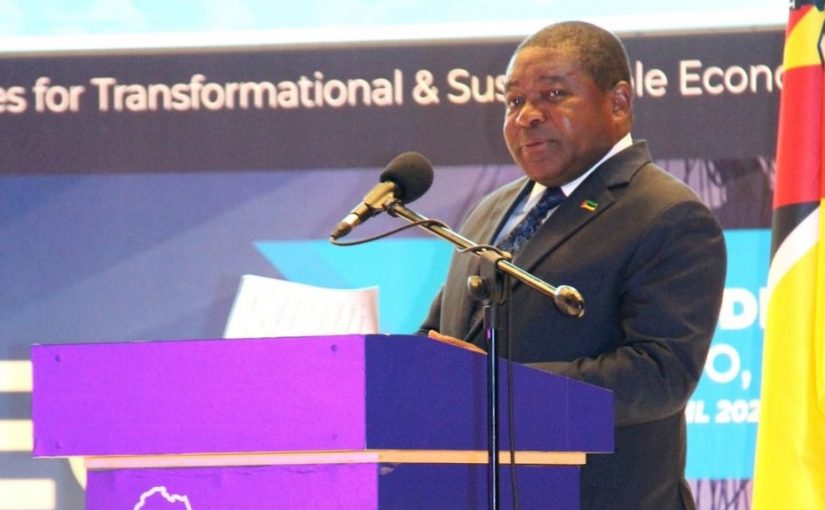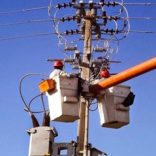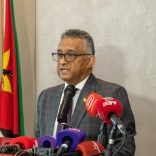Mozambique: EDM warns of power cuts in five provinces on Sunday - Notícias
Mozambique: Natural gas should not be only for export

Photo: Ministério dos Recursos Minerais e Energia - MIREME
Mozambican President Filipe Nyusi on Wednesday warned that the production of natural gas only for export risks diverting the attentions of sub-Saharan African countries away from solving their energy problems, such as lack of access to electricity and dependence on hydropower.
Speaking in Maputo at an international conference on mining and energy, Nyusi said that access to electricity in sub-Saharan Africa is still very weak. Half the population have no electric power in their homes, and those who do have electricity consume very small amounts.
He noted that African countries, including Mozambique, are producing natural gas, but mainly for export.
“This vision, only oriented towards the export market, diverts our attention away from two situations facing the energy sector in our continent and in the SADC region”, said Nyusi. “The first is the fact that almost 45 per cent of the population of sub-Saharan Africa, more or less 950 million people, have no access to electricity in their homes. Per capita consumption, excluding South Africa, is estimated at 185 kilowatt/hours per year, compared with 6,500 kilowatt/hours per year in Europe and 12,000 kilowatt/hours in America”.
He noted that around 80 per cent of the electricity consumed in sub-Saharan Africa comes from hydropower.
To reduce dependence on the production of energy through water, a source associated with various climate risks, Nyusi said that natural gas can play a very important role. But for gas, the Achilles heel is financing.
“In the last 10 years (up to 2021), about two thirds of the new generation of electricity has come from gas fired power stations, which offered greater flexibility and stability faced with the uncertainties arising from climate change, and is thus beneficial for the African continent”. Nyusi said.
“However, this trend faces the dilemma of financing, not for lack of viability, but because some countries and institutions are not willing to finance projects that use fossil fuels”, he added. This was the case even though natural gas was the least polluting of the fossil fuels, and would be a safeguard, given the intermittent nature of renewable energies.
Nyusi argued that gas could be “a long term solution, because of the possibilities of its conversion into hydrogen”.
Despite the progress with renewable sources of power, they still had an insignificant weight in the total consumption of electricity in Africa, he added, “and are generally used as a solution for supply of power outside the national grid”.
As for the liquefied natural gas (LNG) project in the northern province of Cabo Delgado, suspended in 2021 because of terrorist attacks, Nyusi was optimistic that the consortium, headed by the French company, TotalEnergies, will soon resume work.
“We expect that the on-shore undertaking, Mozambique-LNG, operated by TotalEnergies, will soon be implemented”, he said, “since it is urgent to take advantage of the window of market opportunities, with the rise in prices”.
Nyusi also mentioned the start this year of graphite mining in the Cabo Delgado district of Balama, but lamented that such minerals are still not being processed inside Mozambique,
“This is where there is a problem”, said the President. “I would like this conference to work so that investors start thinking about processing minerals”.
Transport costs would be much lower, if the graphite were processed in Mozambique, he added, and many more jobs would be created for Mozambican workers.













Leave a Reply
Be the First to Comment!
You must be logged in to post a comment.
You must be logged in to post a comment.